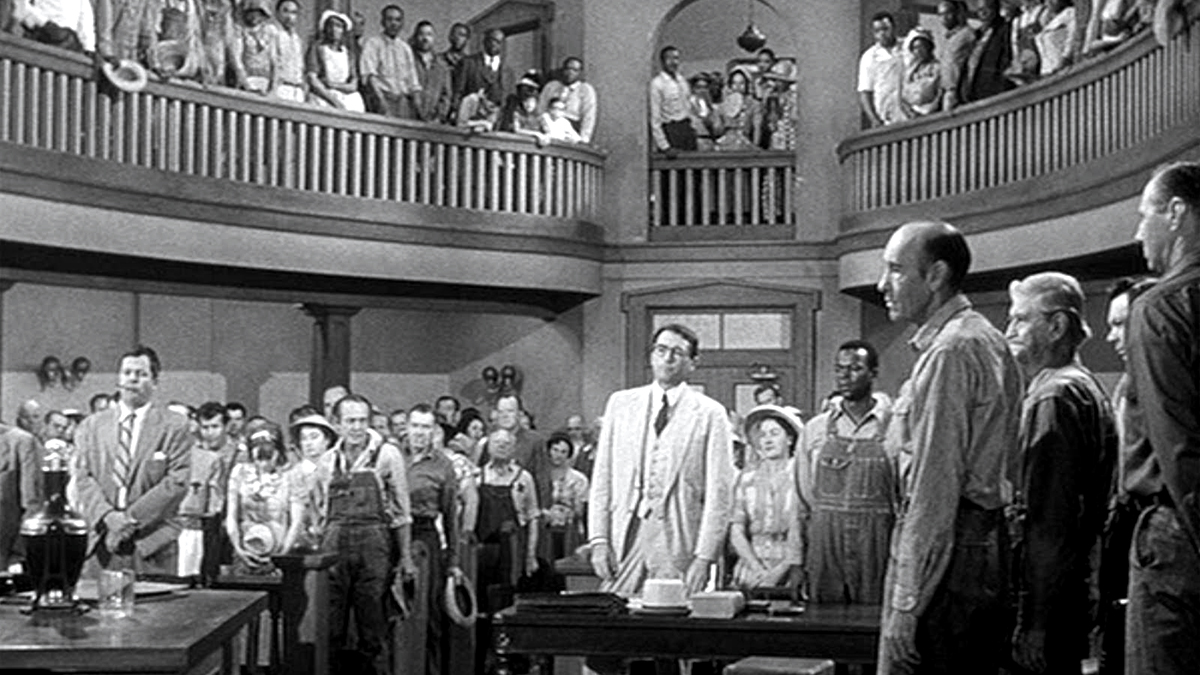Table of Contents
Australian tv host Andrew Denton once said that, if he had to give his kids just one book that would teach them all he wanted to know, it would be To Kill a Mockingbird.
The book has long been a mainstay of set high school English texts, with good reason. Indeed, I first encountered Mockingbird when my elder sister was studying it, and we watched the movie adaptation on TV during the school holidays. I fell in love with it at once. As I later found, while the film was a faithful adaptation, the novel was even richer in material. (Still, who can but picture Gregory Peck as Atticus Finch? Harper Lee certainly thought so, gifting Peck her father’s old pocket-watch.)
Mockingbird is the quintessential story of civil rights and tolerance. Or so we thought.
And now we learn that a schoolteacher in Edinburgh has decided he wants to stop teaching To Kill A Mockingbird and Of Mice and Men because apparently they are outdated and offensive.
Of Mice and Men is another well-deserved American classic. Its cultural impact is so deep that I knew about “Tell me about the rabbits, George!” before I even knew what John Steinbeck’s book was (thanks, Bugs Bunny!).
These novels are recognised as great because, well, they are.
Unfortunately, we live in an idiocracy where greatness is resented by talentless low-achievers.
Allan Crosbie, head of English at James Gillespie’s High School in Edinburgh[…]says Harper Lee’s and John Steinbeck’s classic novels are ‘problematic’. Isn’t everything these days? Their use of the N-word and their promotion of a ‘white saviour’ narrative make them ‘dated and problematical’, he told the EIS teaching union’s annual gathering last month. He continued: ‘Their lead characters are not people of colour. The representation of people of colour is dated. And the use of the N-word and the use of the white saviour motif in Mockingbird – these have led us as a department to decide that these really are not texts we want to be teaching third year anymore.’
Because nothing screams “white saviour” more than some woke-tard babbling the “n-word”. It’s a word, say it: nigger. Anyone who thinks that a word can only be used according to one’s skin colour – and that black people are uniquely unable to bear reading or hearing a word – is in actual fact a racist.
In any case, as black academic Randall Kennedy argues, in his excellent book Nigger, when writers like Harper Lee and Mark Twain put “nigger” in their character’s mouths, they are “not branding blacks, but rather branding whites”.
Like Blazing Saddles, To Kill a Mockingbird is “not willfully buttressing racism…[it is] seeking ruthlessly to unveil and ridicule it”.
Obviously, Allan Crosbie is simply too stupidly woke to understand the distinction.
This is the thing about the censorious, humourless cancel-culture frenzy – it rips everything out of context. So To Kill A Mockingbird can be branded racist, or at least ‘problematical’, despite being the most famous anti-racist novel ever written. Lee’s crime in the eyes of the 21st-century speech police is that she too faithfully depicted the American South of the 1930s, where the N-word would have been used widely and frequently. They essentially wish she had written a less honest novel, one where the gruff racists making false accusations of rape against a young black man said ‘African-American’ rather than ‘nigger’. Yes, that would have been realistic.
Even as a ten-year-old, I got To Kill a Mockingbird. I understood the context of nigger. I realised that Tom Robinson was a tragic hero and that Bob Ewell was a villain. I understood that it was a different time and place.

The idea that these novels might inject ‘problematical’ ideas into the minds of impressionable children is ludicrous. These are self-consciously moral stories, in which the wickedness of the world is confronted by characters with a strong sense of justice. But even if they weren’t, so what? Much of literature is bracing and confronting. Should school kids be protected from Shakespeare plays that feature insults and violence? Or Dickens novels that have a tendency to caricature the poor? This Year Zero mentality that rages against old culture and art for failing to conform to contemporary correct-think on race, sex and class is ludicrous. Very little from the past would survive if it had to pass a woke test. Guess what? People thought and spoke differently back then.
Spectator Australia
For a long time, one of the great images of Nazi barbarity was their book-burning. Even in Indiana Jones movies, Nazi book-burning is a searing image of “the slime of humanity”. The image of outraged Southern Americans burning Beatles records was similarly seen as an example of their Philistinism.
But, as Ray Bradbury wrote in Fahrenheit 451, “there is more than one way to burn a book”.
In today’s Philistine age, simply declaring a book “problematic” is tantamount to taking a match to it. “And the world is full of people running about with lit matches.”
Please share this article so that others can discover The BFD









